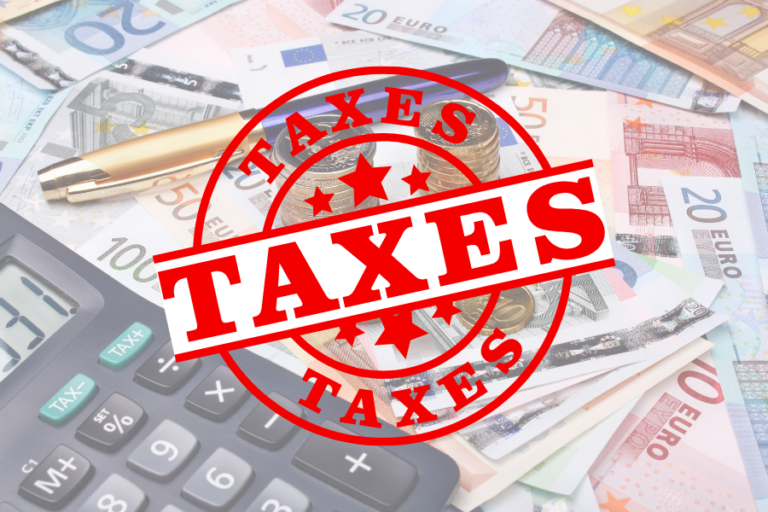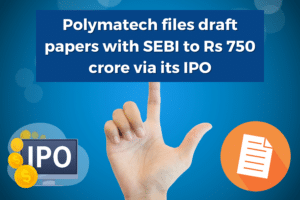Benjamin Franklin once said that only two things are certain in this life-death, and TAXES! Whether you earn as an employee, self-employed, or investor, you can’t get rid of taxes. Unlisted share trading is gaining popularity rapidly. Unlisted shares refer to those stocks that are in their pre-IPO stage and traded over the counter. Therefore, unlisted share investments are the preferred choice of new-age investors and those with years of experience. Despite not being listed on the stock exchange, unlisted shares fall under the same tax implication as listed shares. Both listed and unlisted shares owe you the same piece of business, and the tax implications on both are different.
For instance, you need to hold unlisted shares for 24 months prior to selling before they are applicable for long term capital gain taxes. On the contrary, the timeline is reduced to just 12 months when it comes to listed shares. As an investor, if you are planning to purchase unlisted shares, you should be aware of tax implications beforehand. Hence, in this blog, we will discuss the tax implications on unlisted shares to assist you further.
What Is Stamp Duty On Unlisted Stocks?
In layman’s terms, stamp duty is a tax on selling a company’s asset or its ownership. Stamp duty came into force under Section 3 of the Indian Stamp Duty Act, 1899. It was until July 2020 that stamp duty was only applicable to the share exchange in the stock market. Post the new amendment (effective from July 1, 2020); stamp duty is now applicable on the unlisted shares as well. Before this change, unlisted shares investment was liable for a 0.25% stamp duty. Further, this amount could be waived by transferring the shares to the DEMAT form.
According to this Finance Act 2022, the Indian Stamp Duty Act, 1899 amendments were to be made to the original act. Under the 2019 Act, the stamp duty is a mandatory tax, though its value is reduced. Previously it was 0.25%, but after the effective amendment, the value is now reduced to 0.015%. Apart from this, stamp duty on allotment of unlisted shares is reduced to 0.005% from 0.1%. This cost is paid by the buyer of the unlisted equity shares and in some cases, dealers include this cost in the share price.
Disclaimer:
Stamp duty is paid by the seller otherwise transfer is not allowed by NSDL/CDSL” the cost may be charged to the buyer but payment responsibility is of the seller.
STT: For Recognized Stock Exchange
STT is a tax similar to TCS (tax collected at source ). This financial transaction is a tax levied directly on every sale or purchase of securities. STT falls under the Securities Transactions Tax Act. In the STT Act, though there is no specific definition of securities, the values are borrowed from the Income Tax Act of 1961. Various taxable securities are listed down, which are applicable for STT. The list includes derivatives, units of equity-oriented mutual funds and equity. Apart from this, the list also includes unlisted shares sold under the offer for sale to the public. In simple terms, when unlisted shares are listed on the stock market, their valuation increases, and STT is levied.
STT provision is similar to TDS and TCS and must be collected by a recognised stock exchange such as NSE and BSE in India. STT is to be levied till the 7th of every month, failing to which can lead to interest and penalties. When subsequently added to the stock exchange.
Disclaimer: STT does not apply to unlisted share trading.
What Is TCS?
The IT Act (Income Tax Act) 1961 was recently amended on June 30, 2021, it was clarified that TCS would not be levied on shares sold on the listed stock exchange. As per the circular, TCS (tax collected at source) will be levied from off-market sales. When the Aggregate Sale Value exceeds ₹50 lakhs, 0.1% TCS is deducted. However, if the customer does not show a PAN card, the TCS applicable would be 1% instead of 0.1%.
What Is TDS? Is It Applicable On Buyer or Seller
TDS (Tax Deducted at Source) is the tax deducted on income, assets sales, or dividends. According to Section 194 Q, of the Act, it requires a buyer of goods of an amount exceeding INR 50 lakhs (approx. USD 70,000) from a seller, to deduct tax at source (“TDS”) at 0.1%, on the earlier of either the date of the amount credited to the account of the seller or the date of payment.
Whether unlisted shares and securities would come under the ambit of goods as per Section 194Q?
The CBDT circular has clarified that tax would not be required to be deducted for the on-market purchase of shares and securities through a recognized stock exchange. However, there has been no mention of the implications with respect to the off-market purchase of shares and securities which in turn include shares of private and unlisted public companies. Further, there is also no clarity on whether the tax would be required to be deducted where such off-market sale of securities results in loss or gain.
This lands the buyer in a quandary as to whether the term shares and securities fall within the purview of the definition of goods. Since the Act does not provide for any definition of goods and the definitions provided under the other laws are contradicting, one may end up taking either position. It is essential to have a knowledge of the right process of calculating TDS on unlisted shares and securities to facilitate further classification.
Explanation Of Income Tax Provision On Unlisted Shares
The above mentioned are some taxes buyers and sellers levied with respectively for unlisted shares. The applicability of these taxes depends on the nature of capital gain (long or short term) and the time duration for which the unlisted shares are withheld. In case the unlisted shares are held for less than 24 months, they fall under short-term capital gain (STCG), and if held for more than 24 months, they fall into long-term capital gains (LTCG). In the case of LTCG, the tax leviable is 20% with the indexation benefits.
Now that you know your taxes, you can proceed to unlisted share purchase with Stockify. We are the best unlist share dealer in India. With years of industry expertise and experience, our knowledge is just the suitable ingredient you need for selling or buying unlisted shares.
Capital Gains Tax on Unlisted Shares
The unlisted shares fall in the category of long-term capital assets, and it amounts to a capital gain tax. So, when investors sell the shares after a long holding period, the profit would be taxable at the rate of 20% with indexation benefit. However, in the case of short-term capital assets, the tax rate on the sale of unlisted shares is 15% of capital gain tax that will be imposed if securities transaction tax is paid; otherwise, it will be calculated based on a slab rate basis.
If an investor holds the share for more than 24 months, the benefit of indexation adds more advantages. Indexation is the process where the purchase price of a share gets adjusted based on inflation rates. So, it favours reducing the tax implication of capital gains and scaling up the benefit from high purchase prices.
So, investing in unlisted shares can be an effective way to bring diversification in an investment portfolio. However, it is important to have an understanding of tax implications that result in minimising tax liability. You can consult with finance experts and tax professionals to help structure your tax compliances.










